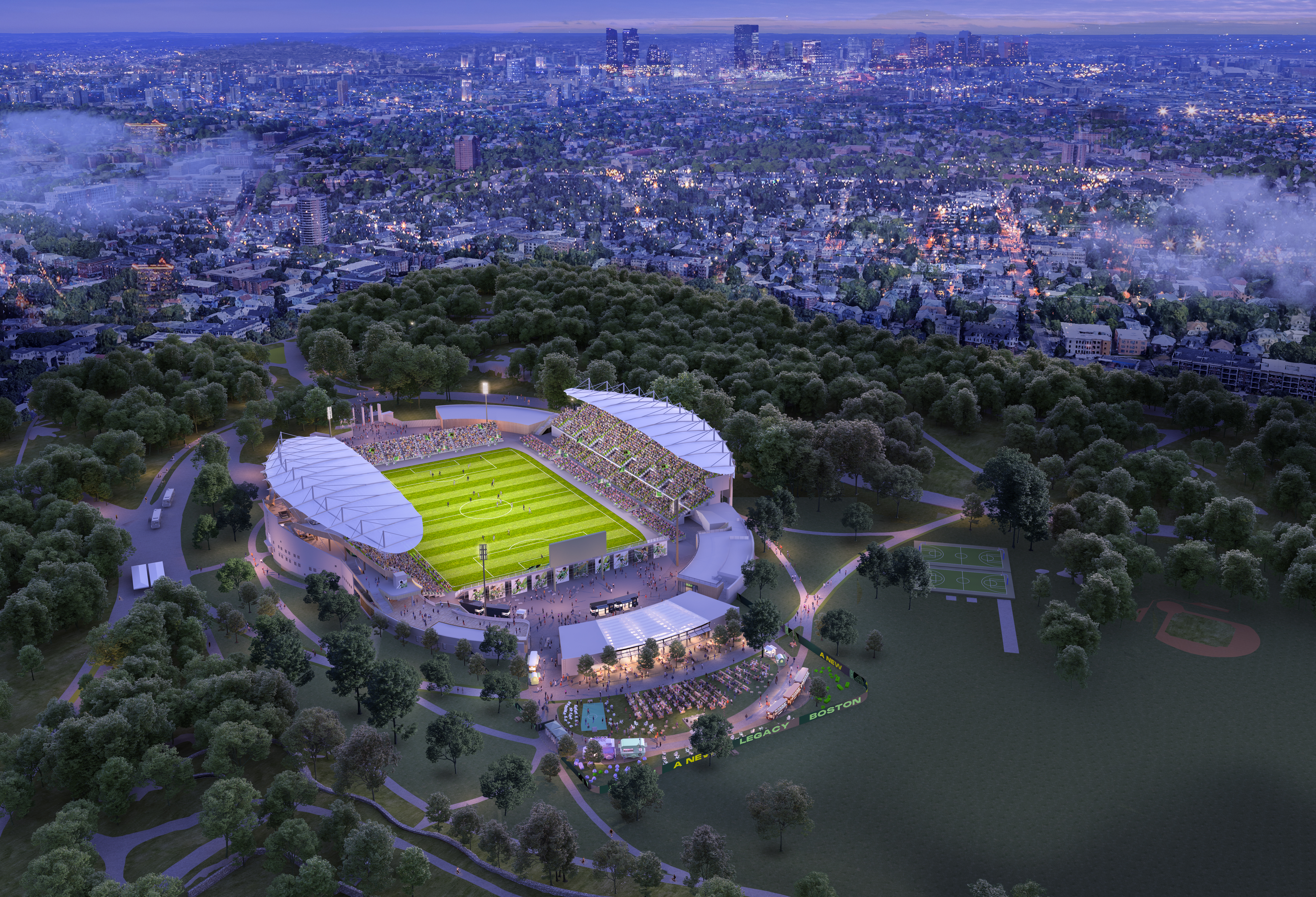
Boston Mayor Michelle Wu announced Monday that the city has reached a lease deal with Boston Unity Soccer Partners to use White Stadium in Franklin Park as the new home for Boston's National Women's Soccer League franchise.
"As of this morning, Boston has signed a lease with Boston Unity Soccer Partners to open up the largest investment into Boston Public Schools athletics and White Stadium since it opened in 1949," Wu said.
"This is a very proud and exciting moment for our city, Boston Public Schools students and our club," Boston Unity Soccer Partners founder Jennifer Epstein added. "We are incredibly proud that our home will be in the heart of the city."
Wu said she didn't want to wait until after the holidays to announce the news.
"We know that it's been a long, intensive process of working through all the various pieces. We also know there's been tremendous community interest and we had promised to share all the details as soon as they were finalized," she said.
The lease is for 10 years, with two 10-year extensions. It calls for Boston Unity to pay the city $400,000 a year in rent, with annual increases of 3%, along with a 10% revenue share for all stadium and field naming revenue and a 3% revenue share for concessions.
Read the full 321-page lease agreement here.
An operations and maintenance reserve fund will also be set up, with contributions made by the soccer club. Financial safeguards were included to protect the city in case for any reason the project cannot be completed or if financing is not secured.
Boston Unity will also make an annual $500,000 contribution ito a community annual fund, increasing by 3% each year, and $1 from every ticket sold will go into a Franklin Park preservation fund. A tree bank is also being established where the city and the soccer club will plant more than 500 trees in Franklin Park in the coming years.
After the renovations, Wu said the rundown facility will have at least 700 hours available annually for Boston Public Schools and for community events. In addition to a new professional-grade grass field, it will include a new regulation 8-lane track, brand new locker rooms and community space. The existing tennis courts and basketball courts outside the stadium will be refreshed, and public restrooms and water fountains added. Existing stormwater issues will also be addressed.
"It's going to have incredible ripple effects across the entire community," the mayor said.
Read the full 52-page stadium use agreement here.
The city and Boston Unity have said the new stadium and complex would host the new BOS Nation FC, provide a state-of-the-art facility for Boston Public School students to use as their home turf and still be available for community use. BPS, which operates the existing stadium, cannot afford to renovate it alone, the city has said.
The Boston Globe reported last week that the total cost of the project had about doubled to nearly $200 million, with the city's estimated share of the construction costs rising from $50 million to $91 million. And while the NWSL expansion team expects to start play in 2026, a trial scheduled for March in a lawsuit lodged by local opponents is now threatening that timeline.
In a GBH Radio appearance last week, Wu acknowledged the jump in estimated project costs and said that both the city and the soccer team share that responsibility. And she defended the project as co-host Jim Braude prodded her about considering alternatives, particularly as the Legislature has now opened the door to a professional soccer stadium in Everett.
"The costs of renovating something that has been falling apart for 40 years are significant … Each side is responsible for what happens with costs on either side, and I will share that the increase in costs has happened on both sides, on the city and the team. And we're working towards the final lease details and I think that will become clear," Wu said.
Residents and parks advocates who oppose the plan for the new White Stadium have banded together as the Franklin Park Defenders citizens group to sue the city and team in Superior Court, and a judge recently set a March 18, 2025 date for a trial. The organization hammered Wu soon after her radio appearance.
"Boston taxpayers are being asked to write a blank check for the benefit of BOS Nation's millionaire investors, with no limit to how much this bloated project could ultimately cost us. The rush to complete this massive project on the soccer team's forced timeline will certainly lead to additional cost overruns," Dorchester resident Jessica Spruill said in a statement. "There is still time for Mayor Wu to rethink this mistake and reconsider the many reasonable alternatives."
Without addressing the group specifically, Wu responded to the argument from some that the city should instead spend about $20 million to renovate the existing White Stadium to be a modest high school facility.
"This was built in 1949. So at $8 [million] to $20 million, sure we could repaint some things, sure we could make some cosmetic changes," the mayor said. "But it would not allow us to really take things to the next level."
State House News Service contributed to this report.



